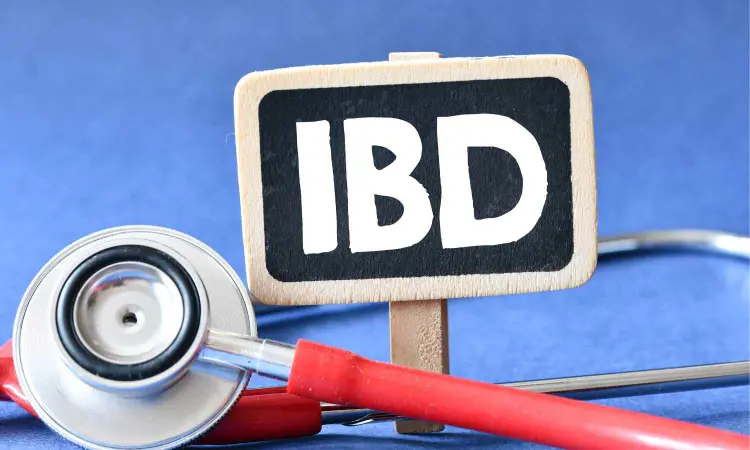- Home
- Medical news & Guidelines
- Anesthesiology
- Cardiology and CTVS
- Critical Care
- Dentistry
- Dermatology
- Diabetes and Endocrinology
- ENT
- Gastroenterology
- Medicine
- Nephrology
- Neurology
- Obstretics-Gynaecology
- Oncology
- Ophthalmology
- Orthopaedics
- Pediatrics-Neonatology
- Psychiatry
- Pulmonology
- Radiology
- Surgery
- Urology
- Laboratory Medicine
- Diet
- Nursing
- Paramedical
- Physiotherapy
- Health news
- Fact Check
- Bone Health Fact Check
- Brain Health Fact Check
- Cancer Related Fact Check
- Child Care Fact Check
- Dental and oral health fact check
- Diabetes and metabolic health fact check
- Diet and Nutrition Fact Check
- Eye and ENT Care Fact Check
- Fitness fact check
- Gut health fact check
- Heart health fact check
- Kidney health fact check
- Medical education fact check
- Men's health fact check
- Respiratory fact check
- Skin and hair care fact check
- Vaccine and Immunization fact check
- Women's health fact check
- AYUSH
- State News
- Andaman and Nicobar Islands
- Andhra Pradesh
- Arunachal Pradesh
- Assam
- Bihar
- Chandigarh
- Chattisgarh
- Dadra and Nagar Haveli
- Daman and Diu
- Delhi
- Goa
- Gujarat
- Haryana
- Himachal Pradesh
- Jammu & Kashmir
- Jharkhand
- Karnataka
- Kerala
- Ladakh
- Lakshadweep
- Madhya Pradesh
- Maharashtra
- Manipur
- Meghalaya
- Mizoram
- Nagaland
- Odisha
- Puducherry
- Punjab
- Rajasthan
- Sikkim
- Tamil Nadu
- Telangana
- Tripura
- Uttar Pradesh
- Uttrakhand
- West Bengal
- Medical Education
- Industry
Two-Way Link Between Type 2 Diabetes and Inflammatory Bowel Disease, finds Study

Researchers have found in a new study that type 2 diabetes mellitus (T2DM) and inflammatory bowel disease (IBD) are strongly and bidirectionally associated, with each condition significantly increasing the risk of developing the other. The research, based on data from the large UK Biobank cohort, indicated that IBD patients, such as ulcerative colitis (UC) and Crohn's disease (CD), were more likely to develop T2DM, and T2DM patients were at an increased risk of developing IBD. The study was published in Clinical Gastroenterology by Xu J. and colleagues.
T2DM and IBD are both chronic conditions that have many overlapping mechanisms, including immune dysregulation, chronic inflammation, imbalance of the gut microbiota, and disturbed metabolic pathways. Evidence on their causal link in the past, though, has been variable.
The research used UK Biobank data, involving 4921 IBD patients and 438,948 non-IBD controls to evaluate the risk of new T2DM, and 11,649 T2DM patients with 438,948 non-T2DM controls to review the reverse direction. The median follow-up time points were 12.6 years for new T2DM and 12.9 years for new IBD. Multivariable Cox proportional hazards regression analyses were used to estimate adjusted hazard ratios (HRs) after adjustment for various potential confounders like demographic features, comorbidities, and lifestyle habits.
Results
• At follow-up, the investigators ascertained 27,373 new cases of T2DM and 2696 new cases of IBD.
• Among participants with IBD, the risk of T2DM was significantly increased compared with non-IBD participants (HR = 1.44; 95% CI: 1.31–1.59).
• Subgroup analysis demonstrated comparable associations for UC (HR = 1.41; 95% CI: 1.26–1.58) and CD (HR = 1.62; 95% CI: 1.39–1.89).
• Those with T2DM had a higher risk of developing IBD (HR = 1.40; 95% CI: 1.15–1.69), with significantly higher risks for UC (HR = 1.41; 95% CI: 1.13–1.76) and CD (HR = 1.48; 95% CI: 1.08–2.04).
• The evidence further suggested that the risk of developing T2DM increased with worsening IBD severity and vice versa, with evidence of a dose-response gradient between disease activity and risk of comorbidity.
The research concludes that IBD and T2DM are bidirectionally linked, with each condition enhancing the risk and severity of the other over time. This interaction implies common biological mechanisms through chronic inflammation and metabolic derangement. The results promote regular surveillance of glucose metabolism in patients with IBD and gastrointestinal health in patients with T2DM to avoid comorbidity-related conditions.
Reference:
Xu, Junxuan PhD; Zhang, Qian PhD; Wang, Zuyao MD; Liu, Si PhD; Zhu, Shengtao PhD; Zhang, Shutian PhD; Wu, Shanshan PhD. Bidirectional Association of Type 2 Diabetes Mellitus and Inflammatory Bowel Diseases: A Large-scale Prospective Cohort Study. Journal of Clinical Gastroenterology ():10.1097/MCG.0000000000002264, October 13, 2025. | DOI: 10.1097/MCG.0000000000002264
Dr Riya Dave has completed dentistry from Gujarat University in 2022. She is a dentist and accomplished medical and scientific writer known for her commitment to bridging the gap between clinical expertise and accessible healthcare information. She has been actively involved in writing blogs related to health and wellness.
Dr Kamal Kant Kohli-MBBS, DTCD- a chest specialist with more than 30 years of practice and a flair for writing clinical articles, Dr Kamal Kant Kohli joined Medical Dialogues as a Chief Editor of Medical News. Besides writing articles, as an editor, he proofreads and verifies all the medical content published on Medical Dialogues including those coming from journals, studies,medical conferences,guidelines etc. Email: drkohli@medicaldialogues.in. Contact no. 011-43720751


